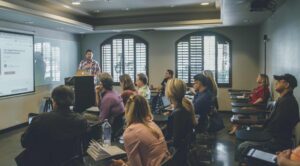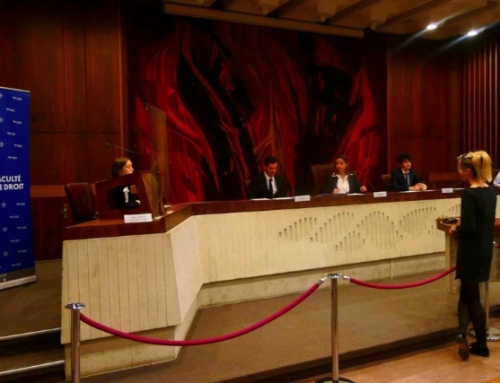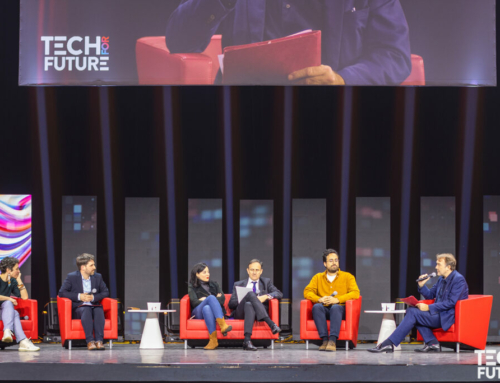At a time when sales of continuing education by public higher education establishments (universities, CNAM, schools) have exceeded 500 million euros in France, the dynamism created by the need for lifelong learning is bringing more and more employees and jobseekers to the university benches.
Over 110,000 diplomas are awarded each year, with universities accounting for a major share – over two-thirds, according to the most recent figures published by Ministry of Higher Education and Research (MESR). 60% of these are national diplomas, a quarter of which are professional licenses, and 30% masters (Source: MESRI-SIES, continuing education survey).
Beyond the figures, we can ask ourselves about the need to support the careers of an entire population, and to provide skills that are increasingly volatile as digital technologies take hold. Is it the fear of skills obsolescence and the disappearance of many professions that is driving our fellow citizens to the doors of universities? Or is it ultimately a change of model, dictated by the digital giants, that is transforming us all into perpetual learners, students in search of new knowledge throughout our lives?
Are we going to escape the power of machines by raising our skill levels ?
As can be seen from the programs offered by universities and the projects they are presenting as part of France 2030, the range of courses on offer is constantly evolving, with a growing emphasis on “soft skills”. Becoming an expert in a traditional field is undoubtedly a prerequisite for the younger generations waiting to enter the professional world, but for others, those who want or need to change jobs, it’s a question of nurturing other ambitions. Fulfillment, mobility and agility have become essential, not only for employees, but above all for the organizations that employ them and wish to keep them on the payroll. These are particularly tight times on the job market, in many sectors, so the company is becoming its employees’ training partner. So it’s hardly surprising that companies are expected to provide 50% of the funding for training courses and diplomas issued by public institutions.

As Franck Giuliani, President of the FCU (Conference of Directors of University Continuing Education Services) points out, “continuing education is one of the missions of universities and higher education establishments, and the wide range of players involved means that there is a wide diversity of responses and modes of access in a fully regionalized offer”. He adds that “to support the return to study, to encourage people to go back to university as part of a certification process, which we know in France remains a key element in the dialogue on the job market, it is necessary to think of new ways of engineering courses, integrating the validation of prior learning, and new multiform teaching methods”.
While it’s only natural that innovation in academic research should be transformed into support for the target audiences, it’s also clear that short training courses are becoming increasingly popular. Today, they account for a quarter of all courses taken, but universities and other higher education establishments are rapidly expanding their offerings.
And it’s undoubtedly via digital tools and technological means of knowledge dissemination that this acceleration is taking place. Indeed, the Ministry is determined to provide substantial resources for this acceleration through the ASDESR call for projects (Accélération des Stratégies de Développement de l’Enseignement Supérieur et de la Recherche – Acceleration of Strategies for the Development of Higher Education and Research), with 31 of the 44 winning projects focusing on the development of continuing education.
Sylvie Retailleau, the French Minister for Higher Education and Research, said in her presentation: “The 44 winning establishments will be able to expand their range of continuing education courses, strengthen their submission of European projects, develop sponsorship and enhance the value of their heritage.
By their very nature, universities offer a wide range of courses.
To meet a training need, they offer :
- national diplomas (DUT, licenses, professional licenses, masters, doctorates),
- engineering titles,
- University diplomas at all levels and qualifying courses, often of shorter duration
- a national equivalent to the Baccalauréat, the University Entrance Diploma (DAEU).
To meet the need for recognition of experience, they provide :
- the Validation of Acquired Experience (VAE 2002), which enables you to obtain all or part of a diploma or qualification on the basis of your experience,
- systems that allow students to be exempted from a diploma level, including entry to university without the Baccalauréat,
- ways of adapting and shortening training paths
- skills assessments.
Source : Conférence des Directeurs des Services Universitaires de Formation Continue – FCU.fr
And what about digital technology ?
As soon as the 1st confinement came out in 2020, some players predicted that the massive use of distance learning would, at the very least, shake things up. France Velasquez, Director of Continuing Education at CY Cergy Paris Université, told Campus Matin:
“We need to learn from this unprecedented period and diversify our approaches. In terms of service, new projects are being set up to support people returning to school, and these will be stepped up by integrating distance learning…”.
Since then, it seems clear to everyone that universities have adapted perfectly, and that digital resources are now mastered by the majority of staff and teachers. Franck Giuliani added: “It’s not enough to produce a teaching scenario that can be accessed remotely, you also have to provide evidence that trainees have taken part, and report on their progress”. And this is still a major challenge for many establishments today.
The digital platforms developed by French EdTech are contributing to the emergence of new teaching practices. Expectations are high, but the richness and diversity of collective intelligence will enable us to find the right solutions to meet the challenges we all face.
Let’s hope that the efforts of all concerned will produce the desired results for the greater good of all.






